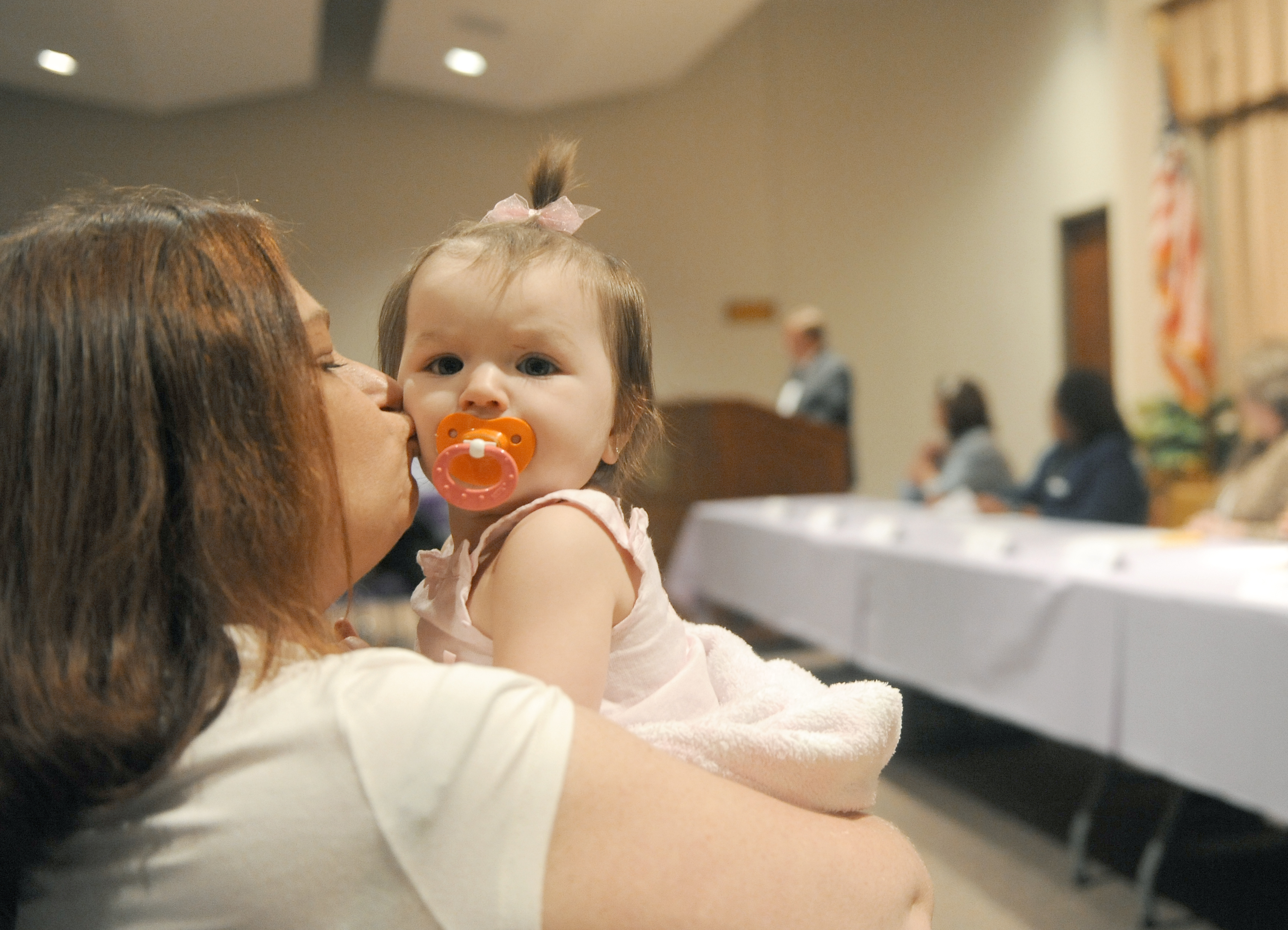BABIES WHO DIDN'T MAKE ITInfant mortality rate is defined as the number of babies who die before their first birthday per 1,000 live births. Below are the 2009 rates for the four largest metropolitan areas in Tennessee.• Shelby -- 13.0• Hamilton -- 7.8• Davidson -- 7.7• Knox -- 5.1Source: Chattanooga-Hamilton County Health Department
Bad news: Thirty-three Hamilton County babies died before their first birthday in 2009.
But records show that's nine fewer than the year before, "which translates into nine more first words that are said, nine more first steps that are taken," Hamilton County Mayor Jim Coppinger said Friday.
His remarks came during a news conference at the Chattanooga-Hamilton County Health Department, where political and public health leaders used the new data as an incentive to further reduce Tennessee's second-highest infant mortality rate among counties. Shelby County has the highest rate.
Judith Miller, chairwoman of the county's Increasing Rate of Infant Survival Program, said proper education "starts with pre-conception." A health department news release said "[about] half of all pregnancies are unplanned," but no one mentioned contraceptives or abstinence.
Against the backdrop of balloons and books such as "Llama Llama Red Pajama," officials failed to mention the elimination of a $192,000 teen pregnancy prevention program designed for Harriet Tubman housing project residents, along with $50,000 in cuts to the health department's infant mortality and family planning programs.
Health department administrator Becky Barnes said her staff would work toward keeping babies alive with the resources they've ended up with.
Observers got the chance to hear about some of those resources during the news conference, especially when Fetal and Infant Mortality Review coordinator Lisa Vincent talked about doing "maternal interviews" with moms whose babies didn't make it.
"There's a healing that occurs," Vincent said, adding that mothers often tell her she's the first person who's inquired about the baby's death.
Smoking, drinking, prescription drugs, stress and "unsafe chemicals or materials" contribute to some infant deaths, according to health department documents.
Vincent said she gathers information from the mothers so health policymakers can better prepare expectant mothers for the challenges to come.
"I'm asked if working infant mortality is depressing," she said. "Making Hamilton County a healthier place for babies to be born and preventing infant deaths is far from depressing."

